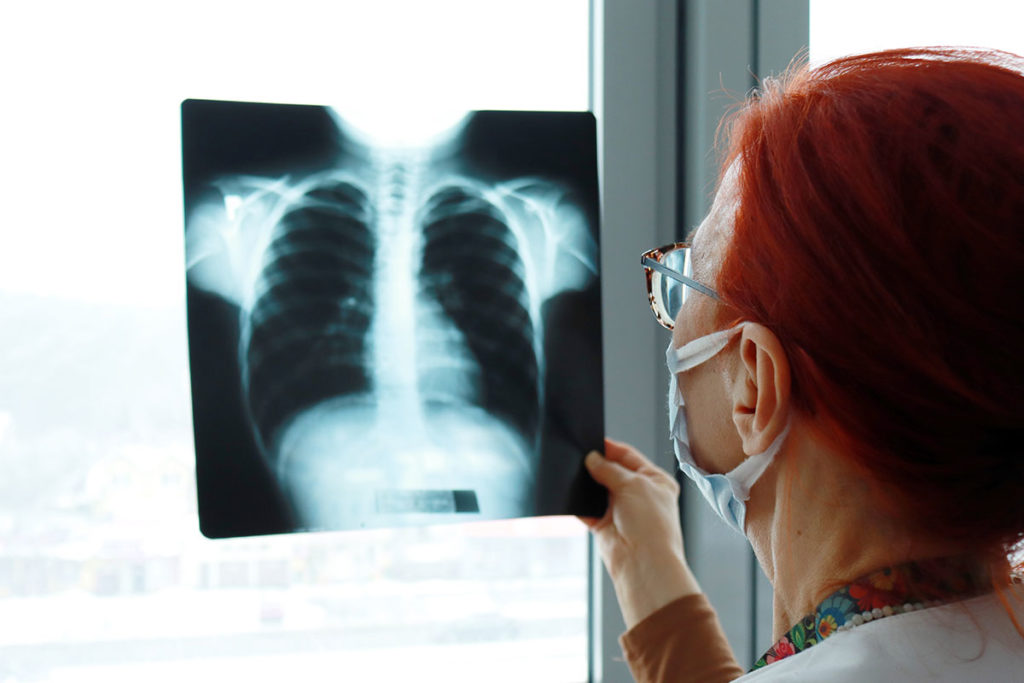
Lung cancer is responsible for a majority of cancer-related deaths in the United States, for both men and women alike. It causes more deaths each year than prostate, breast, colon, and ovarian cancers together. It is the most common form of cancer found in men, and the fifth most common for women.
Types of lung cancer
Lung cancer grows as a tumor that usually forms in the spongy walls of the branching airways within the lungs, called the bronchi. Lung cancer is classified into two different types, depending on how it looks under a microscope:
- Small-cell lung cancer – A less common form of lung cancer, small-cell lung cancer develops mostly in heavy smokers.
- Non-small-cell lung cancer – Non-small-cell lung cancer represents a few different kinds of cancers that develop within the lungs. These types of cancers operate similarly and include large-cell carcinoma, squamous-cell carcinoma, and adenocarcinoma.
Symptoms of lung cancer
Early stages of lung cancer rarely exhibit noticeable signs or symptoms. Symptoms usually become more apparent when the disease has progressed into later stages. Symptoms may include:
- A new cough that doesn’t go away
- Changes in a persistent cough or “smoker’s cough”
- Coughing up blood
- Shortness of breath
- Unexplained weight loss
- Hoarseness
- Chest pain
- Wheezing
- Bone pain
- Headache
Causes and risks associated with lung cancer
Smoking is the leading cause of lung cancer and develops when cigarette smoke enters the lungs and damages the cells. Over time, prolonged exposure to the carcinogens in cigarette smoke causes the damaged cells to develop into cancer.
In rare cases, lung cancer can occur in non-smokers or people who have never been around secondhand smoke. Research has yet to find a definitive cause in these cases. Risk factors that can contribute to lung cancer can include:
- Smoking
- Secondhand smoke exposure
- Radon gas exposure
- Exposure to asbestos and other carcinogens
- Family history of lung cancer
Preventing lung cancer
Though lung cancer is one of the most common forms of cancer, it is also one of the most preventable. Ways you can help reduce your risk for developing lung cancer include:
- Don’t smoke
- Quit smoking
- Avoid secondhand smoke
- Test your home for radon
- Avoid potential carcinogens at work
- Consume a healthy, balanced diet
- Incorporate exercise into your daily routine
For more information on lung cancer and treatment options available, call the oncologists at Southeastern Medical Oncology Center today at (888) 774-0309 to schedule your next appointment.

